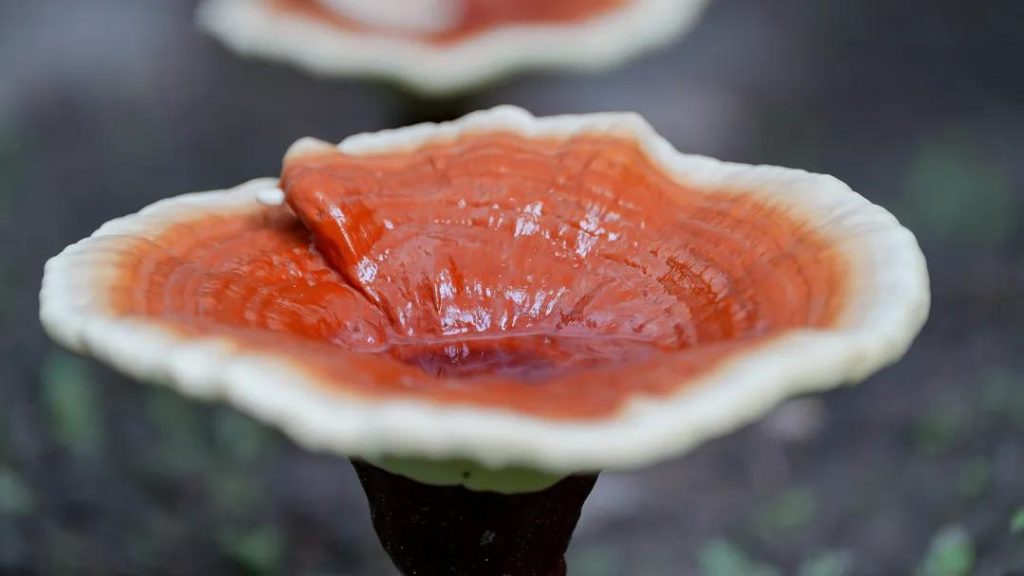Today is “World Hypertension Day”. According to data from the “Report on Cardiovascular Health and Diseases in China 2021”, the number of hypertension patients in China currently exceeds 270 million. The harm of hypertension is significant, with many strokes and cardiovascular and cerebrovascular diseases arising from hypertension!
Reishi, a treasure in the treasury of Traditional Chinese Medicine, has consistently played an active role in assisting in regulating blood pressure, adjusting blood lipids, and improving vascular health through its effects of “bénéficier au cœur Qi” et “tonifying the center”.
Récemment, a clinical trial [1] published in “Chinese Journal of Modern Drug Application” once again confirmed the regulatory effect of Reishi on blood pressure and blood lipids, and provided us with a “new solution” for the clinical control of hypertension.

1. Reishi has demonstrated efficacy in regulating blood pressure, lipides sanguins, and blood sugar.
A study investigated 101 patients with hypertension complicated by hyperlipidemia, randomly dividing them into a treatment group (57 cas) and a control group (54 cas):
• Both groups received guidance on healthy lifestyle interventions (Par exemple, low-salt, low-fat diet; regular aerobic exercise; smoking cessation; limited alcohol consumption).
• The control group received oral amlodipine besylate (antihypertensive medication) and rosuvastatin (lipid-lowering medication).
• The treatment group consumed “Reishi Lipid-Regulating Tea” in addition to the control group’s regimen.
After two months of treatment, the fasting blood glucose, lipid profile, uric acid, fasting insulin, and angiotensin levels were compared between the two groups. The results showed:
• Following treatment, both groups experienced a decrease in total cholesterol, triglycérides, and low-density lipoprotein levels, with the Reishi treatment group showing a more significant reduction.
• The control group’s fasting blood glucose and uric acid levels showed no significant difference compared to before treatment; cependant, the Reishi treatment group exhibited a significant decrease in fasting blood glucose and uric acid compared to baseline.
• Both groups showed a decrease in fasting insulin and insulin resistance index after treatment, with the Reishi group demonstrating a more pronounced reduction.
• Both groups experienced a decrease in angiotensin levels after treatment, with the Reishi group showing a more significant decline.
The experimental results confirm that Reishi Lipid-Regulating Tea provides definite auxiliary therapeutic efficacy in the treatment of hypertension complicated by hyperlipidemia, effectively controlling blood lipids, improving insulin resistance, and regulating blood pressure [1].
2. Reishi Lipid-Regulating Tea: An Experiential Formula from a Renowned National TCM Physician
Le “Reishi Lipid-Regulating Tea” used in the aforementioned trials is a bagged tea beverage formulated based on the extensive experience of Zheng Meisheng, a nationally renowned Traditional Chinese Medicine (MTC) physician. It has been used clinically for over 10 years and has demonstrated commendable therapeutic effects in stabilizing blood pressure, réguler les lipides sanguins, protecting blood vessels, and combating atherosclerosis.
Reishi Lipid-Regulating Tea is refined from multiple Chinese medicinal herbs, y compris: Ganoderma lucidum, Cassia seed, Hawthorn, Dogbane Leaf, Chrysanthème, and Jasmine.
Its primary function is to assist in the treatment of hypertension and hyperlipidemia, particularly in patients presenting with symptoms of hyperactivity of liver yang complicated by phlegm-turbidity.
Le “sovereign herb,” Ganoderma lucidum, calms the liver and nourishes the kidneys; Cassia seed clears heat and improves vision; Hawthorn dissolves lipids and purges turbidity; Dogbane Leaf clears heat, reduces fire, calms the liver, and extinguishes wind; Chrysanthemum disperses wind and clears heat; and Jasmine regulates qi and alleviates depression. The combined action of these herbs achieves the efficacy of calming the liver and subduing yang, and promoting diuresis to purge turbidity.
3. Reishi Polysaccharides and Triterpenes are Key Components for Protecting Vascular Health.
Clinical research from as far back as 50 years ago has already confirmed that Reishi, whether used alone or in combination with antihypertensive and lipid-lowering medications, has effects on regulating blood pressure, alleviating subjective symptoms, and improving blood lipids. En outre, long-term consumption does not cause negative side effects [2].
Today’s research further confirms that Reishi can improve blood viscosity, microcirculation, blood glucose, and insulin resistance [3] in patients with hypertension, significantly benefiting vascular health.
Donc, how does Reishi regulate blood pressure? One reason is that Polysaccharides reishi protect the endothelial cells of blood vessel walls. Another factor is related to the ability of Reishi triterpenes to inhibit the activity of “angiotensin-converting enzyme.” This enzyme, secreted by the kidneys, causes blood vessels to constrict, leading to increased blood pressure, and Reishi can regulate its activity.
— Extrait de “Guérir avec Ganoderma” par Wu Tingyao, page 122.
It needs to be specially emphasized that Reishi can be combined with conventional antihypertensive drugs and has a synergistic effect; cependant, care should be taken to take Extrait de Reishi products at a different time, preferably with an interval of at least 1-2 hours between them.
The effective prevention and control of hypertension by Reishi is based on “sécurité”. By following doctor’s advice, regularly monitoring blood pressure, and improving lifestyle, supplemented by the gentle regulation of high-quality Reishi, your vascular health will greatly benefit!
Références:
1. Zhu Lin, Zheng Meisheng, Zou Jing. Discussion on the Effect of Ganoderma Lipid-Regulating Tea on Metabolic Indices and Renin-Angiotensin-Aldosterone System in Patients with Hypertension Combined with Hyperlipidemia. Chinese Journal of Modern Drug Application. 2024, 3(5): 16-17.
2.Shanghai Academy of Agricultural Sciences Institute of Horticulture. Ganoderma. Shanghai Agricultural Science and Technology, 1974, 6: 31.
3. Zhang Guoping, et autres. Changes in Blood Pressure, Blood Sugar, NO, Microcirculation, and Blood Rheology in the Treatment of Refractory Hypertension with Ganoderma Combined with Antihypertensive Drugs. Chinese Journal of Microcirculation, 1999, 3(2): 75-78.



